Comparison: Vivo V9 vs Oppo F7
Mirror mirror on the wall, who has the better phone among them all?
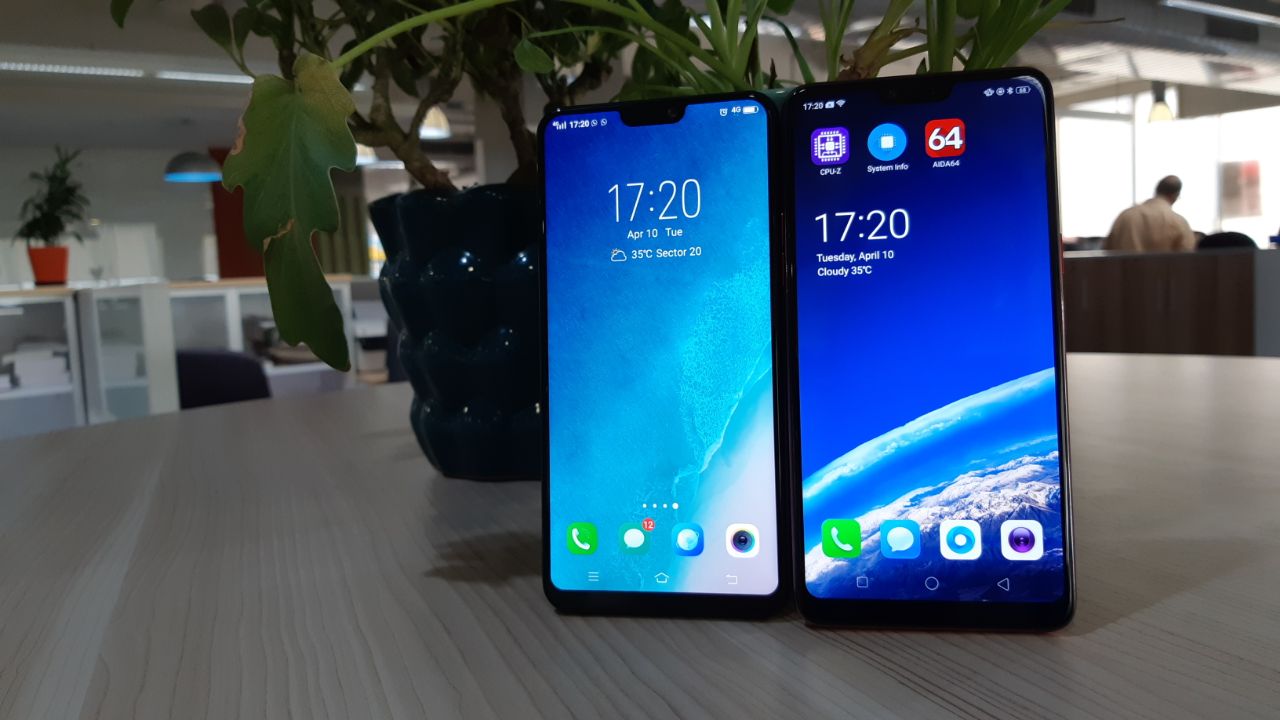
The Vivo V9 and the Oppo F7 are both known as smartphones that specialise in taking amazing photos. Their unique selling proposition has always been that the user will be able to take the best selfies using their front cameras.
Following the footsteps of Apple’s once ‘unique design feature’, both the phones have an iPhone-X type notch on their front display. They even have similar weights and screen sizes. And there’s only a Rs 1,000 difference between the two, making one wonder what is it that sets these phones apart.
So we decided to find the answer by putting the two phones head-to-head in a comparison that should answer all questions about the devices.
Design and build
The first thing that is noticable the minute both the phones are picked up is how much better the Oppo F7 feels. The rounded edges provide a better grip than Vivo V9’s curved, but sharp sides.
The Oppo F7 is also a little heavier, but in a good way that makes users feel they have a solid device in their hand. That being said, it would hardly be noticeable if you weren’t holding both the devices together.
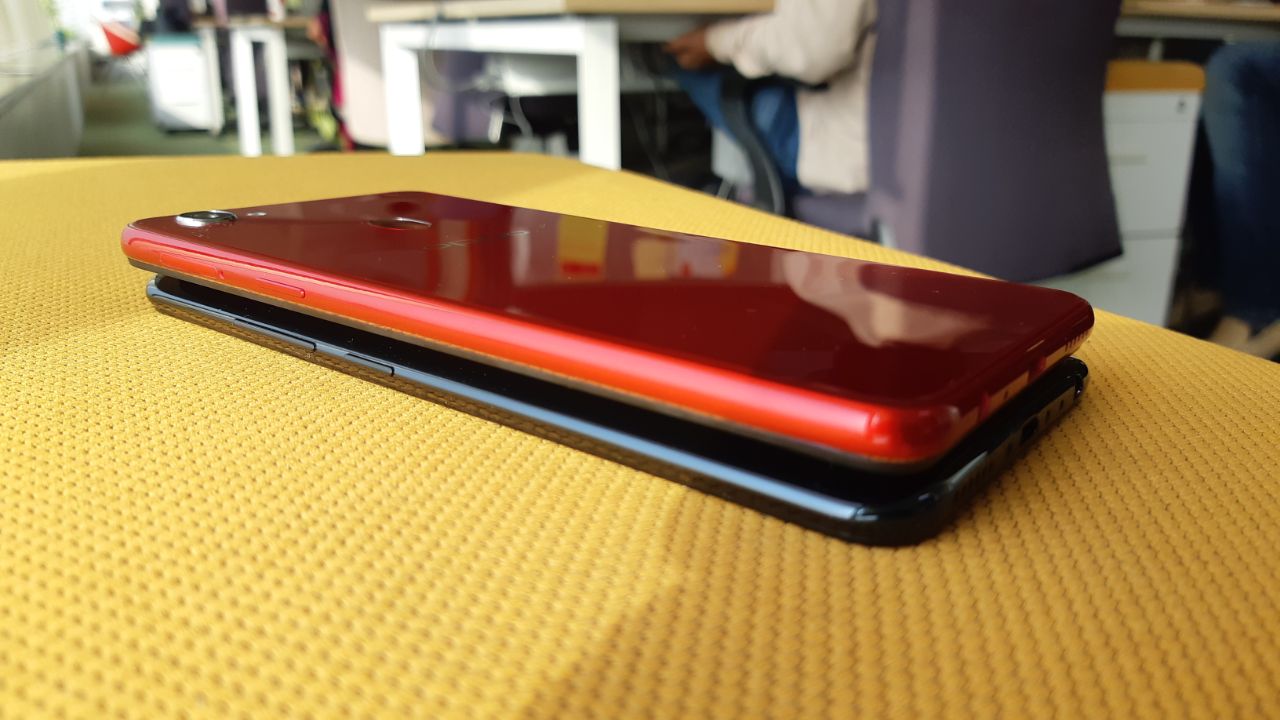
The backs of the phones are made from polymer composite material giving the plastic a glass-like look. Glossy backs are all well and good, but they catch fingerprints all too easily, the Vivo V9 especially. The Oppo F7 has a single rear camera setup while the Vivo V9 has placed its rear dual camera vertically around the back along with the fingerprint sensor.
The phones look nearly identical from the front with their notches placed in the centre. They even have thin bezels all round since the navigation buttons are on screen. The Vivo V9 steps ahead only because it has LED notifications and the Oppo F7 doesn’t provide that option.
Get daily insight, inspiration and deals in your inbox
Sign up for breaking news, reviews, opinion, top tech deals, and more.
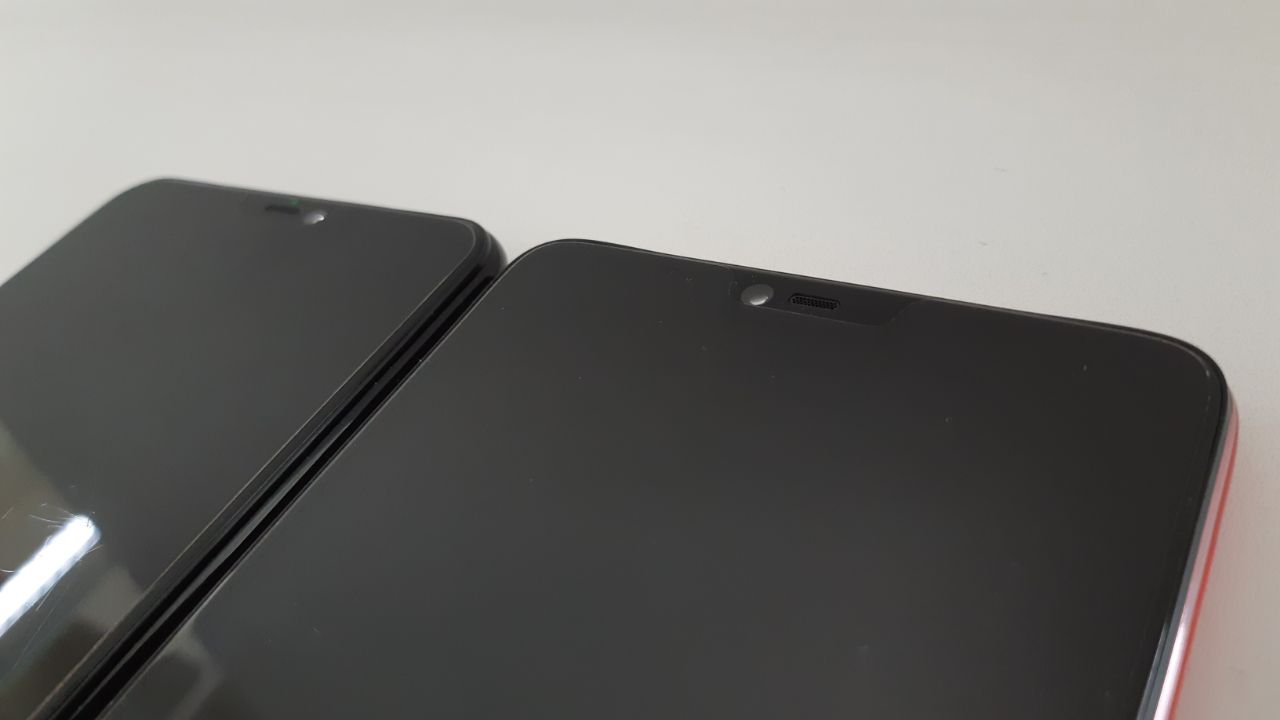
The Oppo F7 makes more of an impression, but quite honestly, the final choice about which phone is better in terms of build is really just a matter of opinion and individual preference.
Performance and Software
Though both phones come with Android Oreo 8.1, 4GB RAM and 64GB storage, how that space is used is very different. Oppo has its own operating system (OS) called the ColorOS 5 and Vivo has the FuntouchOS 4.
Vivo V9’s OS borrows heavily from Apple’s iOS interface with the default theme on the phone sporting icons nearly identical to the iPhone. Even the phone’s settings menu is accessed by swiping up from below, unlike most Android phones where you swipe down from the top.
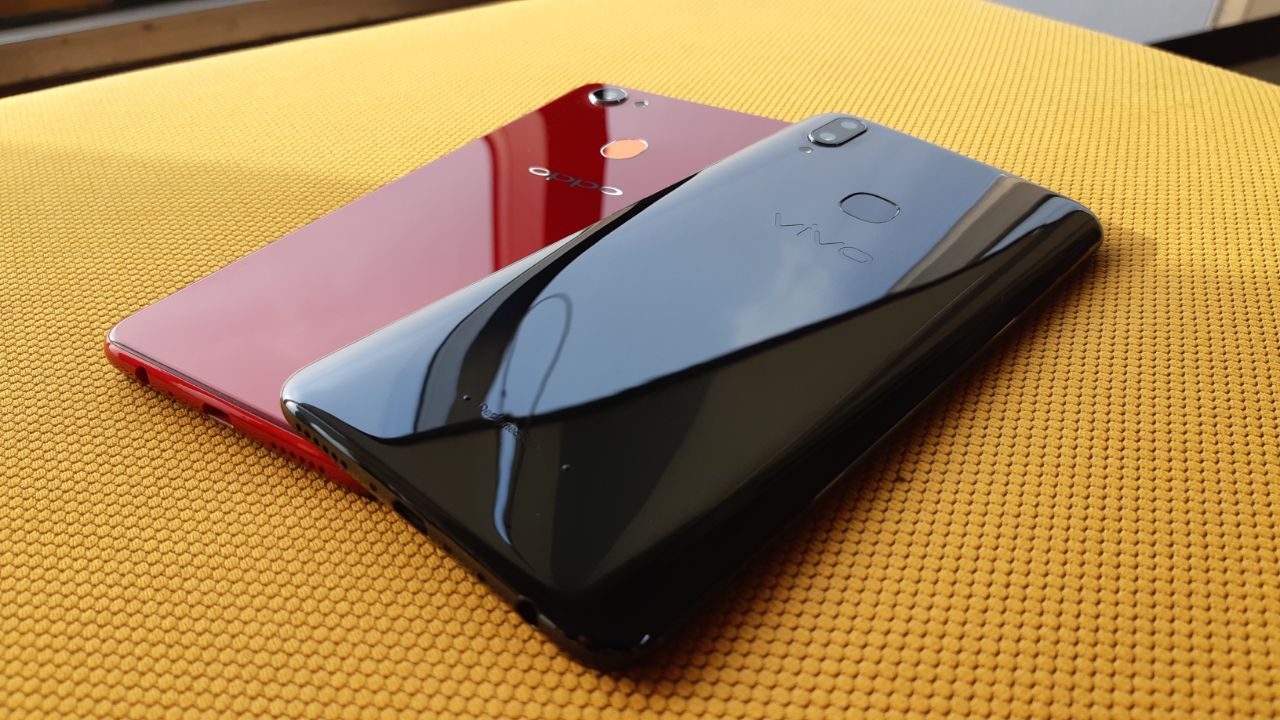
The Vivo V9 runs on Qualcomm’s Snapdragon 626 chipset while the Oppo F7 boasts of a MediaTek Helio P60 system on a chip (SoC). Qualcomm’s processor has octa-core ARM Cortex A53 whereas the MediaTek offering has a quad-core ARM Cortex A53 and quad-core ARM Cortex A73.
Both the phones are smooth enough to operate with no glaring disparities. The Oppo phone does seem to handle gaming more seamlessly than the Vivo device and downloads were faster but, it’s only apparent since the phones went being used side by side.
Display
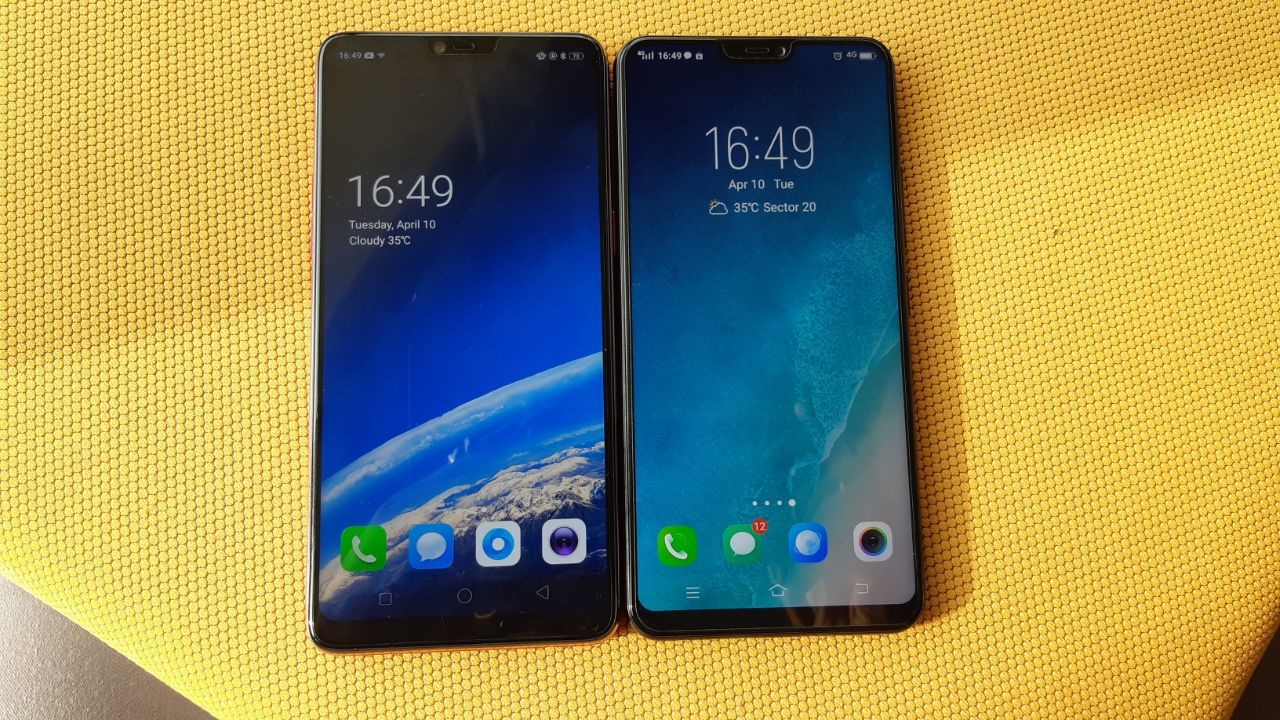
The first thing that is noticeable when it comes to the display on the phones, is that while the Oppo F7 panel is more balanced, the Vivo V9 screen has a red tint to it. They look the same otherwise with the Oppo having a 6.23-inch FHD+ panel and the Vivo sporting a 6.3-inch FHD+ display.
As was with the phone’s capacity, the screens display the same behavior. Just because they both have 19:9 screens, doesn’t mean the companies have implemented them in a similar manner. The Oppo F7 can run full-screen with the same aspect ratio while the Vivo V9 fails to utilise the area around the notch and falls short.
There’s something to be said for the Oppo F7 being more efficient with the resources at its disposal.
Battery
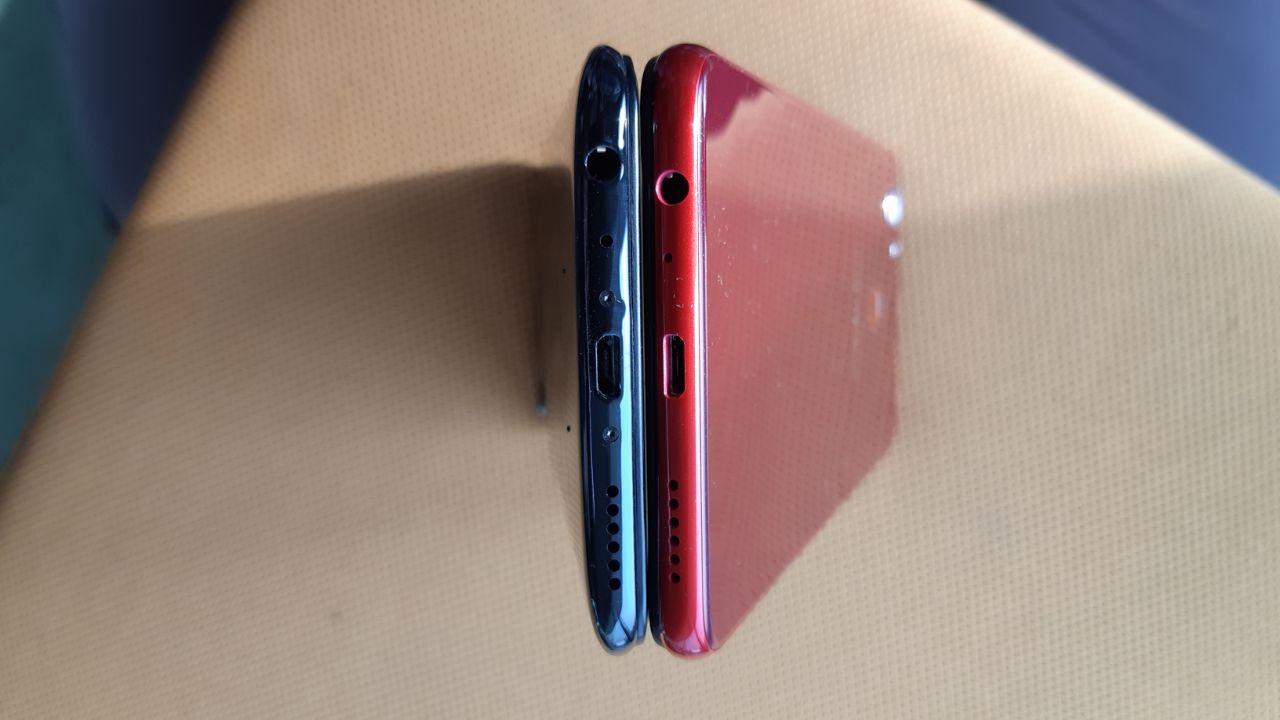
The differences in their batteries are very slight. The Vivo V9 is powered by a 3260mAh battery and the Oppo F7 works off a 3400mAh power unit. The difference in battery capacities isn’t so large that battery life should be affected if both the phones run the same apps.
Perhaps it is the difference in processors or it may be the difference in operating systems, but the Oppo smartphone seems to use its battery more efficiently than the the Vivo V9, especially when it comes to browsing and videos. The Oppo F7 was still at 20% charge while the Vivo V9 was zapped off all power.
That 20% can make all the difference in the world when you’re heading home from work and you need to de-stress by listening to some music, messaging a friend or reading up on the news.
Camera
Now we come to the feature that brought these companies their popularity, the smartphone camera. The Vivo V9 has a vertical dual camera in the back while the Oppo F7 has a single rear camera.
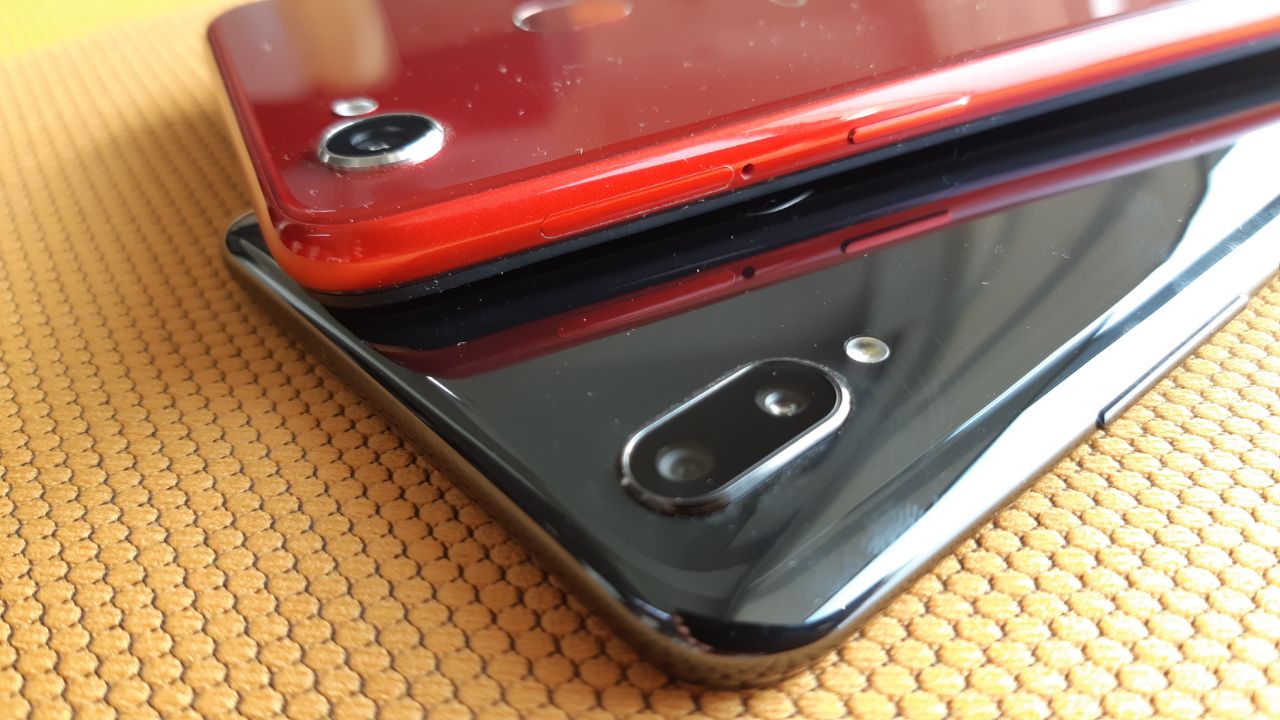
Vivo’s primary sensor is 16MP and the secondary sensor is 5MP. It can be used to click photos that have the Bokeh effect. Users can even record in 4K, which is something the Oppo F7 is incapable of doing. With a mid-range price tag, that’s a little underwhelming.
In natural light, taking pictures using the Vivo V9 yields bright pictures but the Oppo F7 produces sharper shots. The detail efficiency of the Oppo device can be seen in how the reflections are reproduced. The Vivo V9 leaves them as blobs of light, while the Oppo F7 outlines them clearly. The oversaturation is disappointing considering the Vivo smartphone has a dual camera setup.
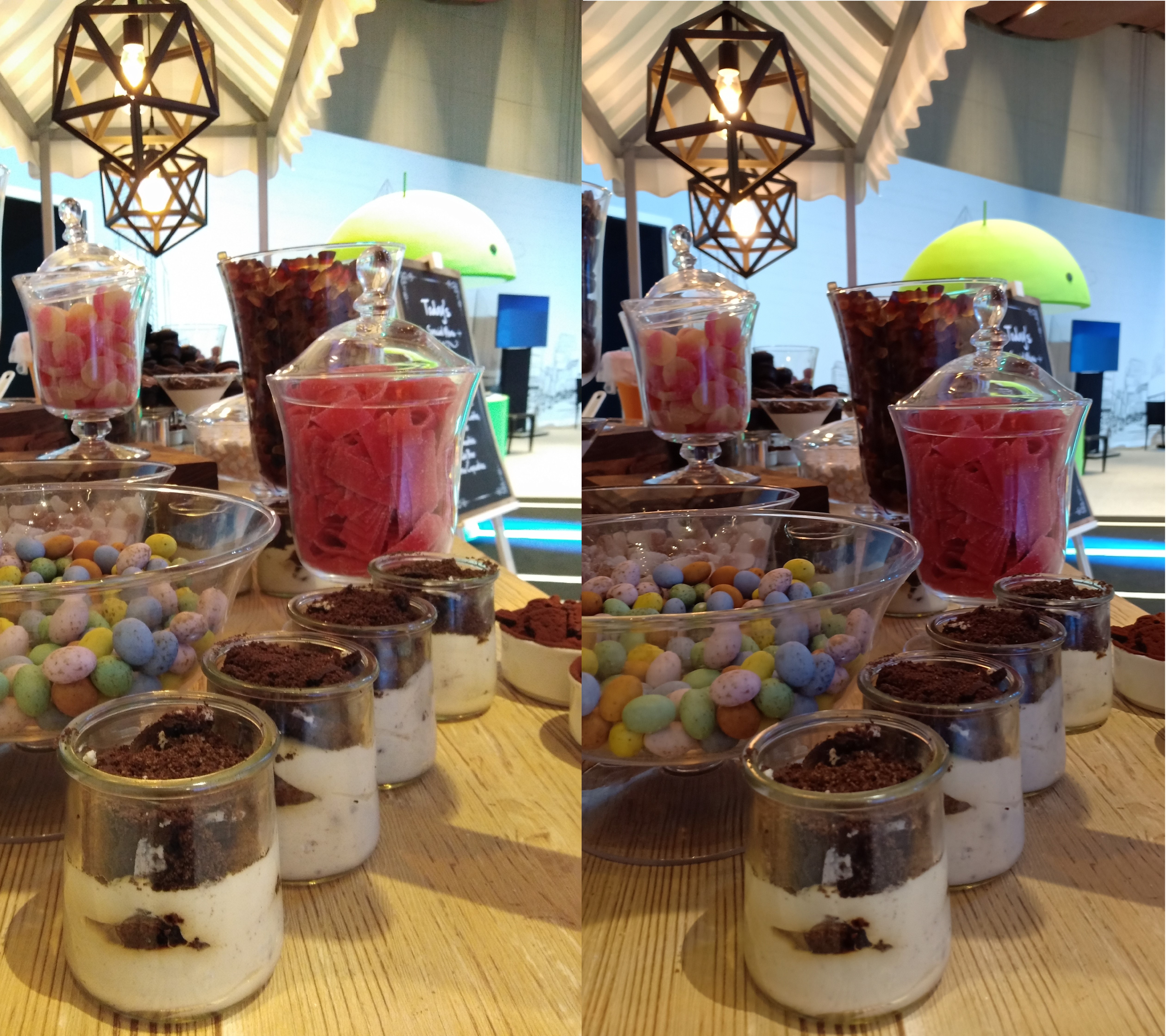

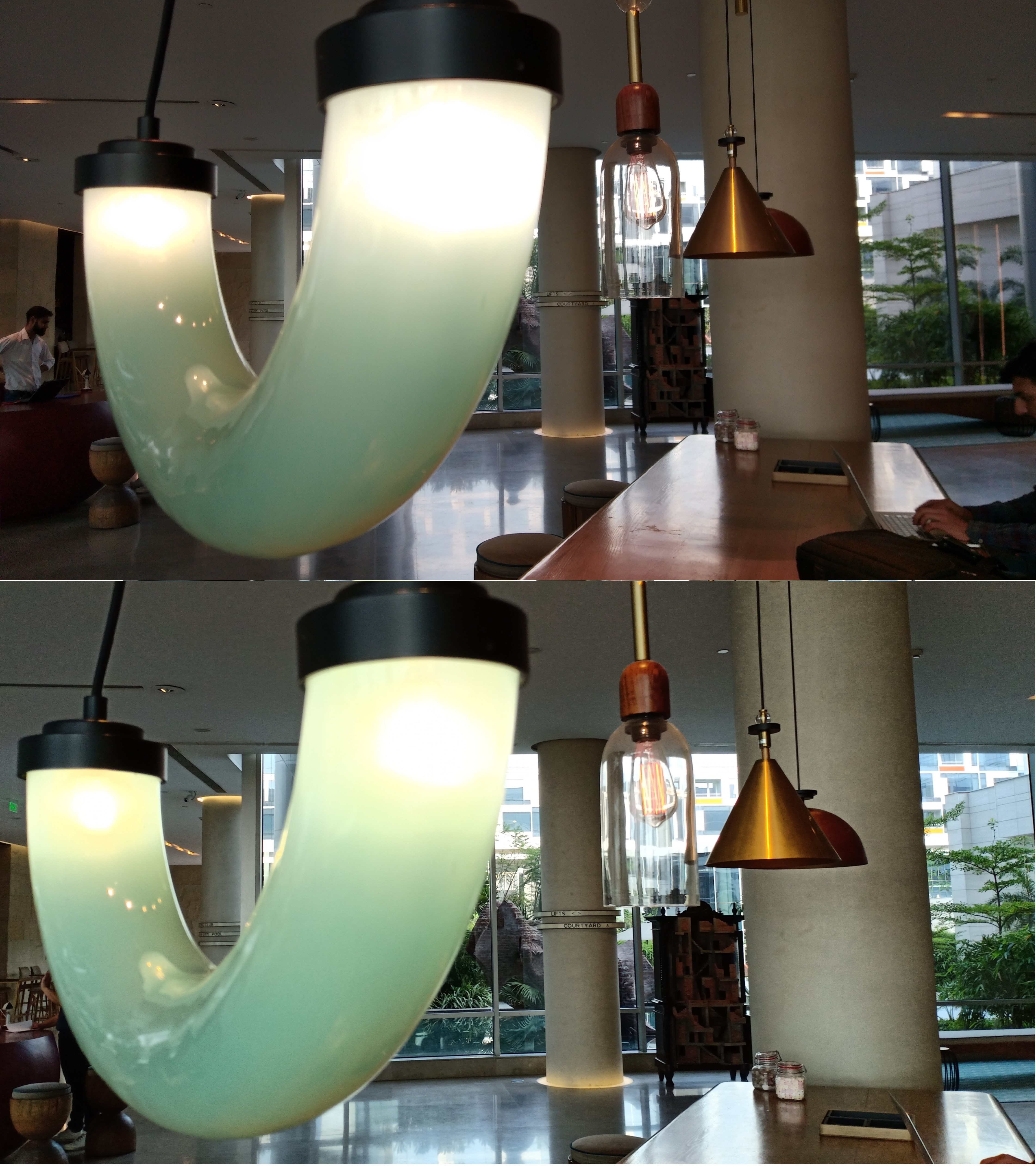

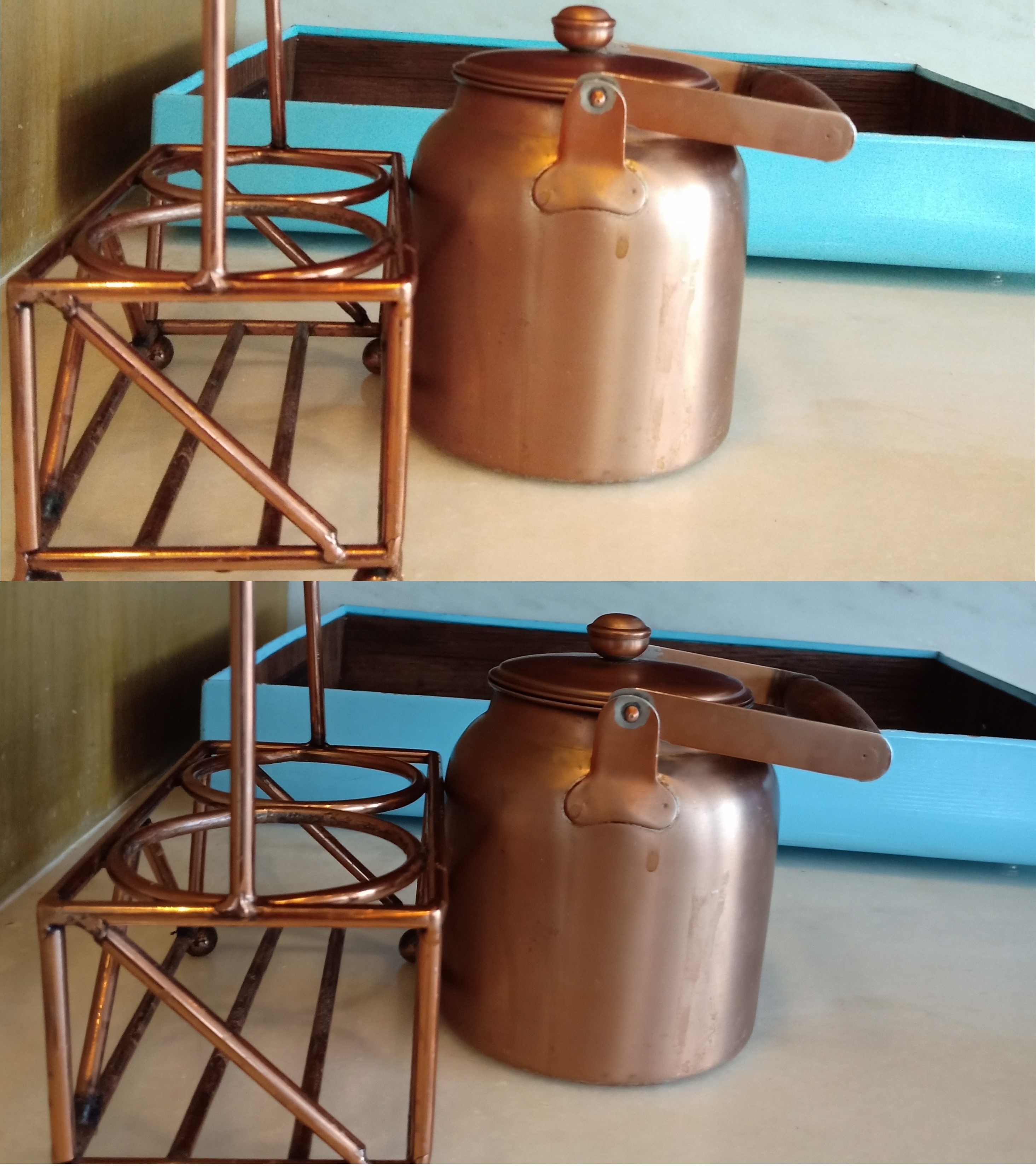
Despite superior specifications, the Vivo V9 surprisingly under-performs in low light conditions. Oppo’s singular 16MP rear camera captures light more efficiently but the images appear grainy. The photos taken by Vivo aren’t as bright, but have more depth.
Essentially, neither camera handles the lack of light very well but Oppo’s photos seem more usable than the Vivo V9 images.
When you apply the Bokeh effect under low light conditions, Oppo’s camera is significantly better. The image is sharper, has more detail and essentially does what Bokeh is supposed to do. But, the Vivo V9 scrambles the background with over saturation in places.
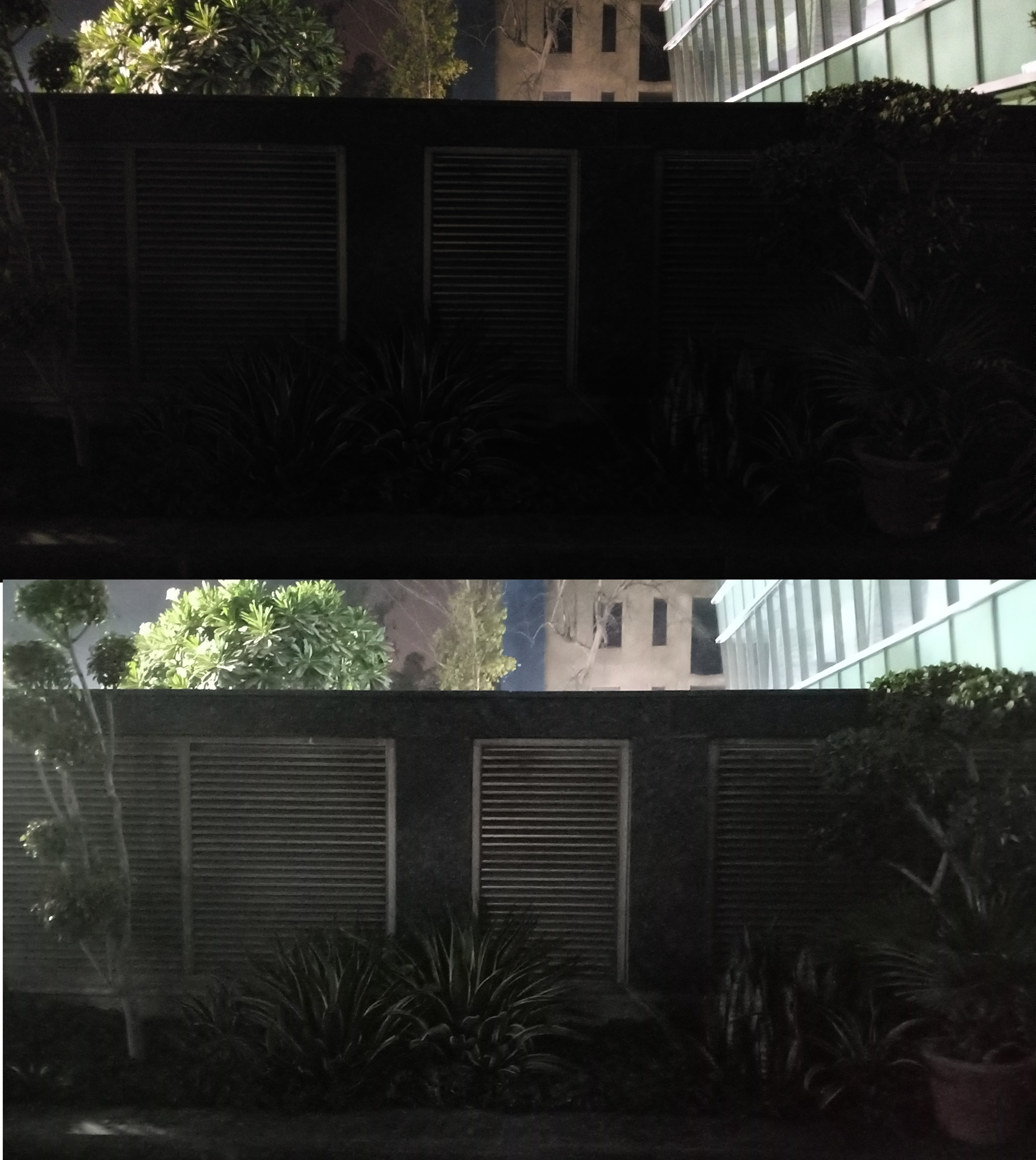
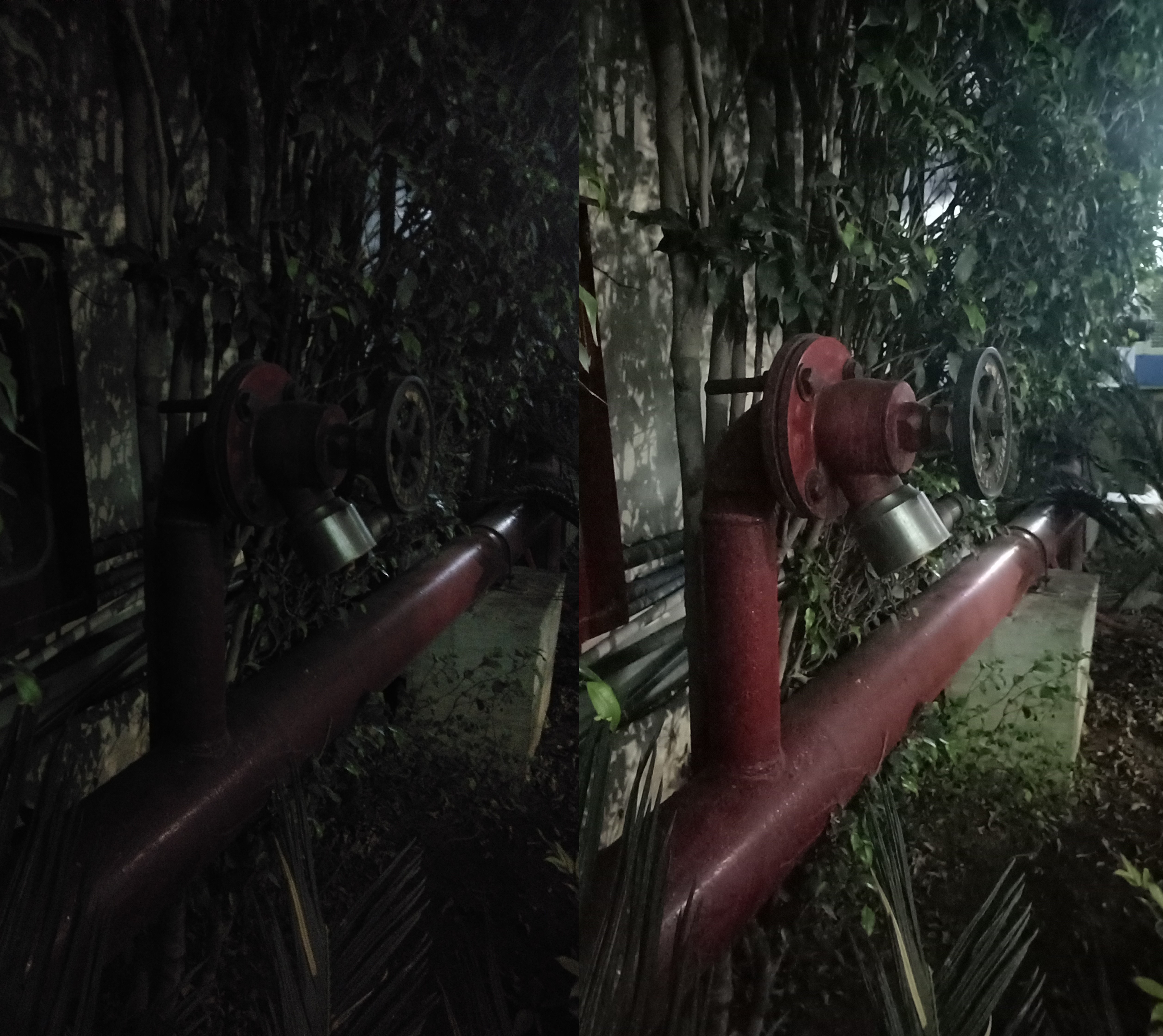


As for the the front cameras, the Oppo F7 has a 25MP front camera while the Vivo V9 has a 24MP lens. Ordinary selfies are slightly better on the Vivo smartphone, but once you enable the AI feature, it’s like you’re dealing with two very different cameras.
The Vivo V9’s AI capabilities generate selfies that smooth out imperfections but don’t add warmth or look over done. Oppo’s camera AI though makes the edges in the selfies too smooth making the post process of the app much too obvious.
But, there’s a catch. If the selfies are clicked on the default AI mode using the Vivo V9, they don’t actually look all that different from the selfie that would be generated without AI. This holds true for well lit conditions but when the camera is put to the test under low light conditions, one phone outshines the other.
Oppo’s Bokeh effect has much more clarity and depth than the Vivo V9 samples. Vivo’s Bokeh selfies don’t feel like they have any depth effect at all. Not to mention the same issues with noise and details in the images under low light conditions that came up for Vivo’s rear camera as well.


Overall, Vivo V9’s dual camera isn’t anything to write home about, especially since the Oppo F7 does a better job with just a single lens at its disposal.
But in the case of selfies, since they’re personal by definition, it’s a matter of preference and how you like your photos to be processed. Just like everyone uses a different software to edit their photos depending on what ‘look’ they want, the choice between the two front cameras functions the same way.
Verdict
The 4GB/64GB variants of the phones cost Rs 22,990 for the Vivo V9 and Rs 21,990 for the Oppo F7. So, that’s Rs 1,000 discount for a phone that has a better performance. Both phones support expandable memory using MicroSD cards, so capacity won’t be an issue any time soon.
The Oppo F7 even comes with 6GB RAM and 128GB storage, but that variant costs Rs 26,990.
Overall, the Oppo F7 outshines the Vivo V9. Better battery life is definitely the feature that takes the cake, but being a smartphone that boasts of camera capabilities, the Oppo smartphone actually proves it by delivering better in low light conditions. It’s a little disappointing that the Vivo V9 doesn’t have the same characteristics.
- Still undecided? Here are more comparisons to help you weigh you options.
- Xiaomi Redmi 5 vs Note 5
- Xiaomi Redmi Note 5 vs Note 5 Pro
- Samsung Galaxy S9 Plus vs iPhone X vs Google Pixel 2 XL
Prabhjote Gill is the Senior Journalist at Business Insider India. She covering everything space, tech and defence at Business Insider India. She is also in-charge of allocating stories to junior writers.